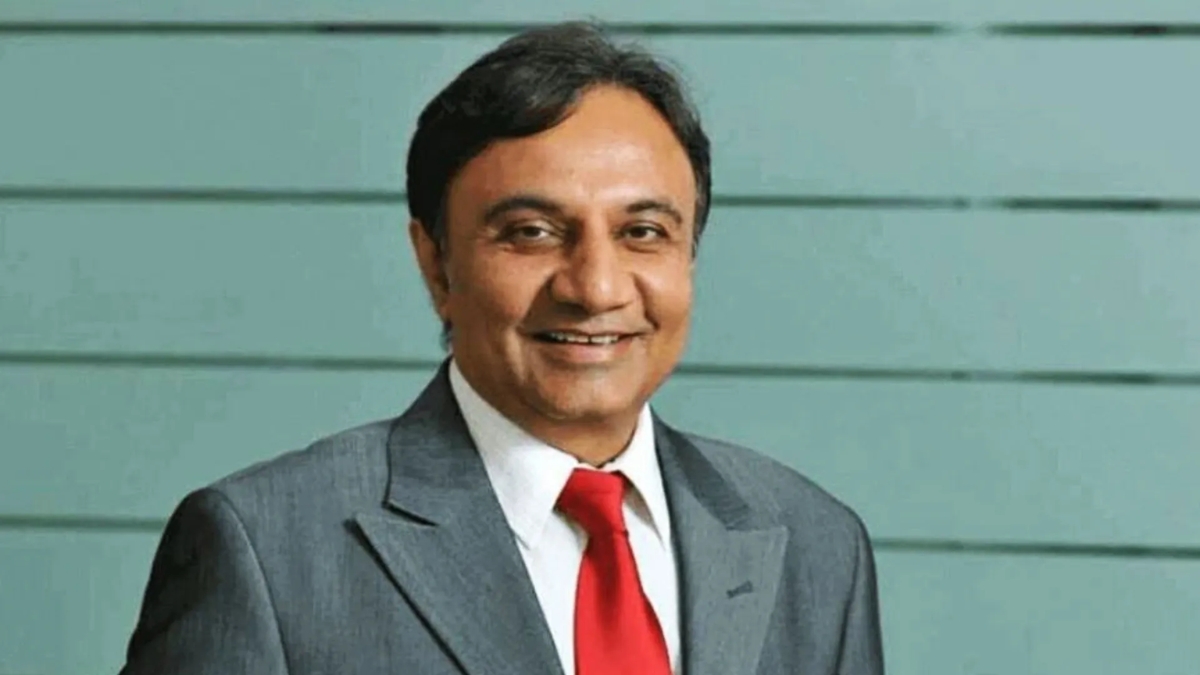Rachit Poddar, Co-Founder of IVY Growth Associates
“India’s last budget laid a strong foundation for the world and the economic growth has been recognized across the globe for it’s world-class digital infrastructure, unparalleled pandemic mitigation and achieving sustainable development goals. The current budget will act as an imperative blueprint to spearhead the next growth phase on 7 pillars i.e. Green Growth, Youth Power, Inclusive Development, Reaching the Last Mile, Infrastructure and Investment, Digitalisation, and Unleashing the potential. The GDP of India heavily relies on Education, Agriculture, Healthcare & Industry, and the government demonstrates a continued interest in serving these areas with significant policies and schemes. A focus on technological advancements with investments in AI centres and Data reforms is a testimony of India’s goal to be the forefront of technology adaption. This will unlock India to build on several emerging Industries and sectors with high employment-generating capability. This budget will empower financial literacy in rural areas, Industry 4.0, job creation, seamless compliance windows and capital expenditures. The macroeconomic policies and consolidation will sustainably ensure India’s growth promoting entrepreneurs to take a big leap in contributing to the growth of our country.”
Prateek Tosniwal, Co-Founder of IVY Growth Associates
“The Union Budget for the fiscal year 2023-24 has redefined the country’s capital investment landscape. Certainly, the new policies launched will revive the startup ecosystem in pan India. As per the finance minister, the revamped credit guarantee scheme will take effect from April 1, 2023, through the infusion of Rs 9,000 crore in the corpus. This will enable additional collateral-free credit of Rs 2 lakh crore to MSMEs. The mentioned policy will be a game-changer for small to medium-scale enterprises in the country. The economy is to grow at 7% in the current year. This is the highest among major economies. India is on the right track despite the time of challenges. Finance Minister Nirmala Sitharaman sticks to the advance estimate for current fiscal year growth of 7 %. Capex’s outlay increased by 33% to Rs 10 lakh crore for FY24. At this level, public capex will be 3.3% of GDP. Equity indices are in the green so far. The Centre’s capex target for 2023-24 is 33 % higher than the budget estimate of Rs 7.5 lakh crore for 2022-23. Overall, it is a great budget for capital investors and investment networks, and it will fortify the country’s financial investment ecosystem.”
Birma Ram, Founder of BabyG App
“The intent is good, but progress has been slow in making India’s startup ecosystem compete with advanced economies. This budget is at best a baby step; we need leaps to unlock the potential!”
Vyom Shah, Founder & CEO of Foodism
The Union Budget 2023 is set to bring a plethora of opportunities for young entrepreneurs. The Government brought in numerous measures such as tax cuts and exemptions that are aimed at helping small businesses grow and expand. These measures will help create more jobs, stimulate economic growth, and encourage innovation in the country. There shall be more incentives for investors and venture capitalists who are willing to invest in start-ups. It is a major step towards providing a much-needed boost to SMEs and start-ups in the country.
Karan Aggarwal, Chief Investment Officer of Elever
It is a brave budget considering that Finance Minister is presenting the last full budget before the elections.
Instead of loosening purse strings, she sets an aggressive target to reduce the fiscal deficit from 6.4% to 4.5% in 3 years which bodes well for markets and the economy in the long term.
The government continued to propel the shift towards an infrastructure-led development model by increasing capital investment outlay to INR 10 Lakh crore, a 33% increase over last year and a 200% increase since 2019.
Rail infra would get an allocation of INR 2.40 Lakh crore which is 9x that of FY 2014.
These investments can positively impact manufacturing exports, demand, and incomes. While there is something for every sector and section in the budget, including some elusive concessions on income tax under the new tax regime, instead of concessions, the government has banked on rising incomes in coming years to boost private consumption and demand. It is a big political gamble, but markets would relish it.
Vishal Mangal, Co-founder of FightRight
“The vision of a natively digital infrastructure for the judicial system as outlined in the E-Courts for Phase 3 project is indeed a game-changer. By enabling litigants and lawyers to file cases from anywhere, at any time, the project aims to increase access to justice and reduce barriers to entry in the court system. This can lead to greater efficiency, convenience, and improved services for all parties involved in court proceedings. Additionally, digitizing processes will enhance transparency and accountability while reducing the time and cost associated with court proceedings. Implementing this infrastructure will significantly shift towards a more modern, efficient, and technology-driven justice system, which can have a lasting impact on the legal industry and the broader economy.
Further, the tax incentives proposed, like extending the sunset clause and carrying forward losses, will for startups provide a considerable impetus to the economy as envisaged by the Government”.
Darsh Golechha, Founder & CEO of Legacynext
“The update on DigiLocker in the budget further boosts the ability to have a one-stop space for personal identity, data and information. We at Legacynext could not be more excited as we look to enable this as part of our platform and offering to our customers”.
Giridhar LV, Founder of Nuvepro
“It’s great to see that deep tech such as coding and AI and other new age technologies being a core focus area for the PMKY 4.0. This is just a step towards ensuring India is job ready with relevant skills to become the third largest economy by 2030. To drive innovation and boost the startup ecosystem, it is also important that students and professionals are imparted with the right skills and hands-on training so that they are project ready, resulting in better and greater output for the IT/tech companies. The technology industry should also pitch in by providing internships to all qualifying students. As per Government of India data, only 43% of the students going through the earlier PMKY schemes were placed. The placement rates can easily cross 60% across industries by making the skilling hands-on and by including internships.”
Shrikant Bhalerao, Co-founder of Seracle
“The crypto market has been in a state of upheaval since the imposition of the 30% tax. The government is uncertain in its approach to handling the new digital asset and, so far, has not decided on whether to reduce the tax rate. The Budget 2023 has clarified that the government still needs more assurance that people are paying their taxes and that the industry is transparent about its holdings. Until this happens, all we can do is continue to work towards driving taxation to the treasury and strive for greater recognition of the potential for cryptocurrencies. With the right measures in place, we believe that the government can embrace the concept and use it for the benefit of both parties”.
Gaurav Rastogi, Co-founder of Kuvera
“It is a balanced budget for individuals. The intent is clear – to simplify the tax code and to close tax loopholes where in possible. So while the minimum tax slab has been raised to Rs 7 lakh in the new tax regime, and the top tax rate has been reduced for UHNI, the efficacy of some of the other tax breaks earlier available through 80C and other schemes have been curtailed”.
Dr. Ganesh Nikam, Managing Director and CEO of Biojobz-
“We had bucketed our expectations before the budget into several categories, and it is encouraging to see that the government checked at least some of them. The pharmaceutical industry’s request to incentivize and encourage R&D investments has finally been granted. The new Centers of Excellence programme, aimed to promote pharmaceutical research and innovation, will encourage investment opportunities that will directly fuel the sector expansion and jobs. It will begin to unleash the high innovation potential of rich Indian scientific talent. Also, on the direct taxes, the increase in the Income-tax rebate limit is a very welcoming step. Overall budget has met a lot of expectations.”









